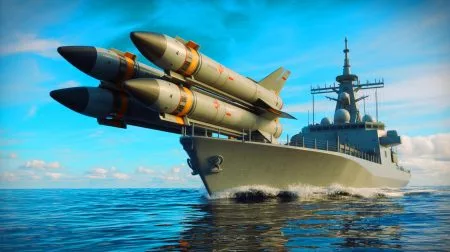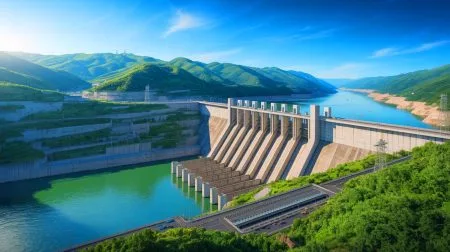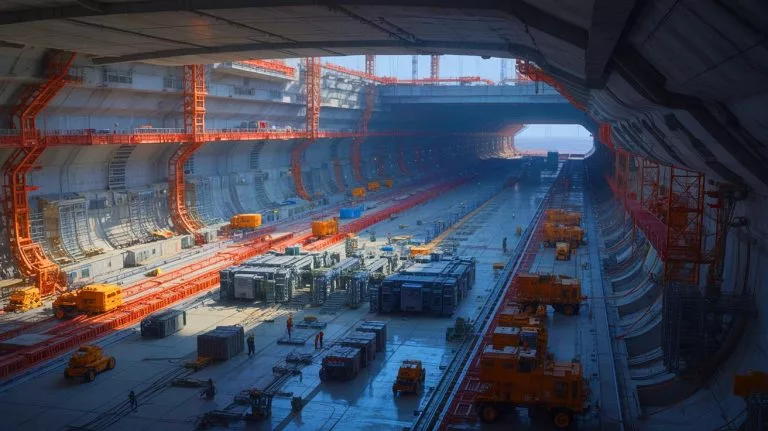| IN A NUTSHELL |
|
The revelation of China’s construction of an underground military command center near Beijing has generated significant interest and concern globally. Satellite images have unveiled this ambitious project, which is poised to be the largest of its kind in the world. This development highlights China’s strategic intent to challenge the United States and alter the global balance of power. As nations across the globe evaluate the implications of this project, the potential shifts in geopolitical dynamics are being closely scrutinized. The impact of this initiative on regional and international security landscapes remains a critical area of discussion among experts and policymakers.
China’s Ambitious Military Vision
China’s new military project underscores its aspiration to develop a robust defense infrastructure that rivals historical Cold War strategies. Since the 1980s, China has invested in creating specialized teams to build fortified underground facilities, designed to withstand even the most powerful bombs. The current project near Beijing takes this concept to an unprecedented scale, emphasizing the nation’s commitment to protecting its military assets against future threats. This colossal endeavor reflects China’s intention to transform its military capabilities and secure its position as a dominant power.
This initiative also highlights the evolving nature of global military strategies as nations adapt to new technological and geopolitical realities. Modern defense strategies increasingly focus on technological advancements and strategic positioning. China’s underground command center is an embodiment of this trend, marking a significant step in its long-term military vision. As geopolitical tensions simmer in Asia, China’s development signals a shift in the regional power dynamics, prompting neighboring countries to reassess their security postures and alliances.
Implications for Global Security
The construction of China’s underground military facility carries profound implications for global security. As China expands its military capabilities, many countries are reevaluating their defense strategies to address the changing balance of power. This project is not merely about military expansion; it signifies a potential shift in the geopolitical landscape, with China asserting a more prominent role in regional and global affairs. Such strategic developments could provoke an arms race, reminiscent of the Cold War era, as nations strive to maintain strategic equilibrium.
For the United States and other global powers, China’s military expansion poses a challenge that may necessitate a response to counterbalance its growing influence. This could involve strengthening military alliances and increasing defense investments, particularly in Asia. The unfolding scenario raises crucial questions about the future of international relations and the prospects for conflict or cooperation in addressing shared security challenges. As nations navigate these complexities, the potential for both collaboration and confrontation remains an open question.
Technological Sophistication and Strategic Depth
Central to China’s military project is its focus on technological sophistication and strategic depth. The underground command center is expected to integrate cutting-edge technologies, including advanced communication systems and defense mechanisms. These innovations highlight China’s broader ambitions to emerge as a leading military power, capable of matching the technological advancements of established military giants like the United States. This approach underscores China’s commitment to innovation and strategic foresight in its defense strategy.
By investing in subterranean infrastructure, China aims to ensure the resilience and sustainability of its military assets. This strategic depth not only enhances the protection of its resources but also positions China as a formidable force in potential future conflicts. This development represents a significant milestone in China’s military history, reflecting its pursuit of long-term strategic goals. As China continues to push the boundaries of military innovation, its efforts are likely to influence global defense strategies and shape the future trajectory of military competition.
Regional Reactions and Future Prospects
The unveiling of China’s underground military complex has elicited a range of reactions across Asia. Neighboring countries are closely monitoring the situation, with some expressing apprehension about the potential impact on regional stability. In response, several nations are exploring strategic partnerships and alliances to counterbalance China’s expanding military presence. This development has prompted a reevaluation of defense strategies as countries navigate the shifting geopolitical landscape.
Looking forward, the future prospects of this project will largely depend on China’s ability to manage its regional relationships and address international concerns. Successfully navigating these dynamics could redefine China’s role on the global stage and lead to new diplomatic engagements. However, the project also raises questions about the potential for conflict and cooperation in an era increasingly defined by military prowess and strategic competition. As the world watches China’s military ambitions unfold, a critical question emerges: How will other nations respond to China’s growing military might, and what will this mean for the future of global security and diplomacy?
As China continues to expand its military capabilities, the international community remains vigilant. The construction of the underground command center is a stark indicator of China’s determination to secure its interests and assert its influence. In a landscape marked by rapid geopolitical changes, how will the global powers navigate these emerging challenges? Will this lead to increased cooperation or heightened tensions? The answers to these questions will shape the future of international relations and the quest for global stability.
Did you like it? 4.4/5 (25)






Wow, this sounds like something out of a spy thriller! 🤔
Wow, this is like something out of a spy movie! Does China really have the tech to pull this off? 🤔
Are there any weaknesses in this underground base that other countries could exploit?
This article is quite alarming. How should other countries respond to this development?
Thanks for the informative article! It’s a bit scary, though.
Thank you for bringing this to light. It’s crucial to stay informed about global military changes.
Isn’t this just a bit of paranoia? I mean, every country has secret bases.
How will this affect US-China relations moving forward?
Isn’t this just another Cold War in the making? History seems to be repeating itself. 😕
Why is the Pentagon publicly admitting to having no defense? Isn’t that a bit risky?
China’s military strategies are becoming more sophisticated. What’s the Pentagon’s next move?
This feels like the beginning of a new Cold War. 😬
China’s ambition is truly something else. Should we be worried?
Can the U.S. and China find a way to cooperate peacefully despite these tensions?
Great article, but how reliable are these satellite images?
Great article, but what are the potential consequences for the average citizen?
So basically, we’re looking at potential global tension rise? Not good.